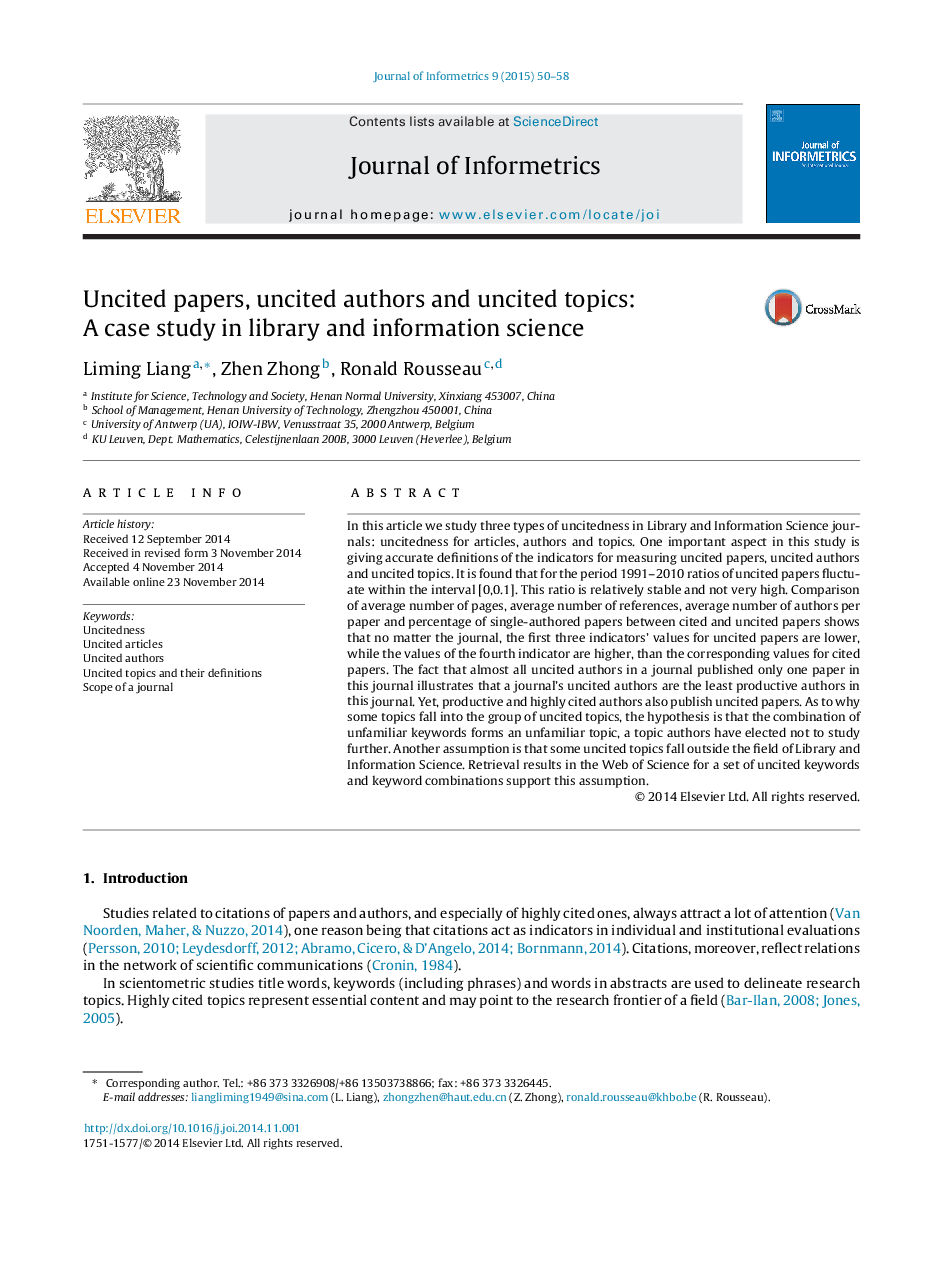| Article ID | Journal | Published Year | Pages | File Type |
|---|---|---|---|---|
| 523914 | Journal of Informetrics | 2015 | 9 Pages |
•Uncitedness for articles, authors and topics is studied for LIS journals 1991–2010.•Ratios of uncited papers do not increase with time but fluctuate within [0,0.1].•Uncited authors are the least productive; productive authors have uncited articles.•Differences between cited and uncited articles (authors, topics) are measured.•Unfamiliar topics formed by the combination of unfamiliar keywords stay uncited.
In this article we study three types of uncitedness in Library and Information Science journals: uncitedness for articles, authors and topics. One important aspect in this study is giving accurate definitions of the indicators for measuring uncited papers, uncited authors and uncited topics. It is found that for the period 1991–2010 ratios of uncited papers fluctuate within the interval [0,0.1]. This ratio is relatively stable and not very high. Comparison of average number of pages, average number of references, average number of authors per paper and percentage of single-authored papers between cited and uncited papers shows that no matter the journal, the first three indicators’ values for uncited papers are lower, while the values of the fourth indicator are higher, than the corresponding values for cited papers. The fact that almost all uncited authors in a journal published only one paper in this journal illustrates that a journal's uncited authors are the least productive authors in this journal. Yet, productive and highly cited authors also publish uncited papers. As to why some topics fall into the group of uncited topics, the hypothesis is that the combination of unfamiliar keywords forms an unfamiliar topic, a topic authors have elected not to study further. Another assumption is that some uncited topics fall outside the field of Library and Information Science. Retrieval results in the Web of Science for a set of uncited keywords and keyword combinations support this assumption.
